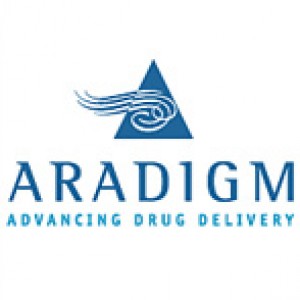 Emerging specialty pharmaceutical company Aradigm Corporation has been granted a new composition of matter patent regarding its formulations of liposomal and free ciprofloxacin from both the European Patent Office and the Austrian authorities. The patent granted within the countries of the European Union and Australia protect the company’s lead investigational product Pulmaquin for the treatment of lung diseases, such as non-cystic fibrosis bronchiectasis.
Emerging specialty pharmaceutical company Aradigm Corporation has been granted a new composition of matter patent regarding its formulations of liposomal and free ciprofloxacin from both the European Patent Office and the Austrian authorities. The patent granted within the countries of the European Union and Australia protect the company’s lead investigational product Pulmaquin for the treatment of lung diseases, such as non-cystic fibrosis bronchiectasis.
The European Patent Office issued a patent called “Dual Action Inhaled Formulations Providing Both an Immediate and Sustained Release Profile,” for liposomal and free ciprofloxacin, covering the inhaled ciprofloxacin therapy Pulmaquin until October 2027. In addition, the company has also been granted a second patent in Australia with the name “Concentrated Inhalable Ciprofloxacin Formulation” that covers ciprofloxacin in Pulmaquin and other formulations until 2027 as well.
“Long term patent protection of our lead product Pulmaquin is an important component of our corporate strategy,” stated the president and CEO of Aradigm, Igor Gonda, in a press release. “Our global efforts in this area are running in parallel with our Phase 3 clinical trials of Pulmaquin for non-cystic fibrosis bronchiectasis currently being conducted across five continents in 14 different countries.”
Pulmaquin is a dual release drug therapy based on a combination of liposome encapsulated and unencapsulated ciprofloxacin, which is a widely known and recommended intravenously administrated antibiotic. In addition to these patents now granted in both Europe and Australia, Aradigm has already been issued four patents in the United States extending coverage until 2031, and another one in Japan until 2027.
Pulmaquin’s effectiveness has previously been studied in preclinical safety trials, as well as in phase 1 and 2 studies. Within the phase 2b study called ORBIT-2, researchers from Aradigm were able to demonstrate the ability of Pulmaquin in reducing the activity of the bacteria Pseudomonas aeruginosa, as well as the time of the first exacerbation, in 42 adult non-CF bronchiectasis patients.
The company is now conducting two double-blind placebo-controlled pivotal phase 3 studies called ORBIT-3 and ORBIT-4, which are designed to evaluate Pulmaquin’s safety and effectiveness in the treatment of non-cystic fibrosis bronchiectasis as a daily chronic inhaled therapy. The severe chronic and rare condition is characterized by bronchi and bronchioles dilatation, typically related to chronic lung infections, but not with cystic fibrosis. It can cause constant development of inflammation, lung infections and bronchial injuries.
Each of the studies will include about 255 participants, which are going to be treated for 48 weeks, divided into six cycles of 28 days, followed by a 28 day open label extension period. The primary endpoint of the study is the superiority of Pulmaquin compared to placebo. Secondary endpoints will measure decrease of pulmonary exacerbations and increase in quality of life.
Since non-CF bronchiectasis is a disease with high unmet medical needs and is highly fatal, affecting over 110,000 Americans and over 200,000 Europeans, Pulmaquin has received Orphan Drug Designation and Qualified Infectious Disease Product, from the U.S. Food and Drug Administration (FDA) in order to accelerate the development process and provide a treatment option for these patients faster.

